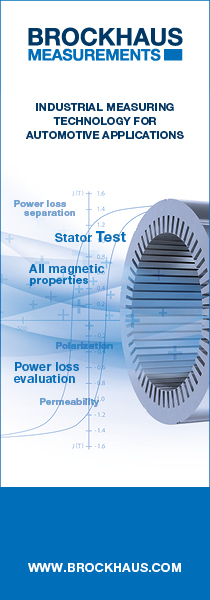Updated 02/05/20
Physical course has been postponed due to Covid 19
We will be running this course, please await further updates
This training programme is an introduction to both soft and hard / permanent magnetic materials run over two days.
Day One will begin by covering some basic magnetic theory such as terminology, units, underlying physics (such as where does the magnetic effect come from?) and concepts (types of ferromagnetism, anisotrophy, hysteresis, domains, coercivity, etc), to give a consistent grounding, and show how magnetic materials behave and the impact on manufacturing routes on material characteristics.
In the next session, Dr Allan Walton will focus on permanent magnetic materials (PM) including Nd-Fe-B (type), Sm-Co (type), ferrite magnets and others with sub classes described in detail (for NdFeB this covered sintered, MQ3, and injection moulded isotropic and anisotropic materials). An overview of the history of PM material development, and a look at the markets and applications for RE PMM will also be given, and comparisons made between the different material classes using an ‘ideal’ material, to describe their useable range of properties including remanence, coercivity, curie temperature, temperature dependence, mechanical and electrical behaviour. The processing routes for each material will be described in detail and the effect these routes have on magnetic behaviour.
On day two Dr Philip Anderson will cover soft magnetic (SM) materials with a main focus on electrical steels. He will explain the main differences between soft and hard magnetic materials and characteristics, and the key concepts and issues of SM materials, including magnetostriction, losses, and the effects of stress and temperature. He will go on to describe the different kinds of available and emerging materials, and their manufacturing processes and how these impact on the material characteristics, ending by comparing the different materials to each other and outlining an ‘ideal’ material.
Dr Anderson will also look at various methods of measuring magnetic effects and the possible errors and likely issues in doing so, including flux density, magnetic field, power loss and localised power loss, and considered the effects of test geometries, concluding by looking briefly at more specialist measurements such as DC magnetic measurements, magnetostriction, machine noise and domain imaging.
An informal course meal will be held on the evening of the first day. The cost of the meal and a printed copy of the course notes is included in the course fee.
This course will be repeated, with further dates to be arranged. If you can’t make these dates, please register your interest below and we’ll be in touch when we rerun the course.
DRESS CODE
The dress code for the event is business attire / smart casual.




